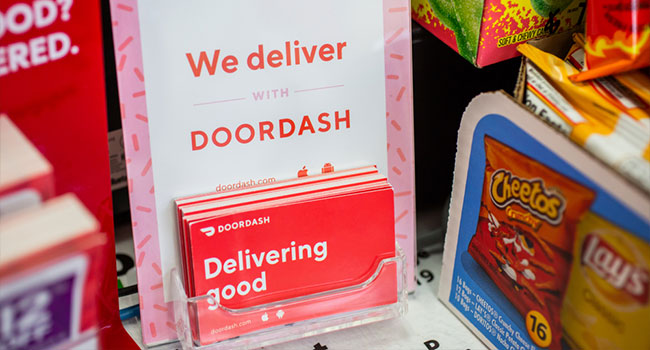
Delivery App DoorDash Becomes Latest Company To Suffer Data Breach Affecting Millions
4.9 million users have been affected by the data breach, which DoorDash discovered in the past month.
- By Haley Samsel
- Sep 30, 2019
Nearly 5 million users of the food delivery app DoorDash have been affected by a massive data breach of personal information stored in the app, the company announced Thursday.
Only users who joined the platform on or before April 5, 2018 are affected, according to a company blog post. That means about 4.9 million consumers, delivery people and merchants had their personal data accessed by an unauthorized “third-party service provider,” DoorDash said.
The data could include names, email addresses, delivery addresses, order history, phone numbers and “hashed, salted passwords” that are indecipherable to third parties. Some consumers also had the last four digits of their credit cards accessed. About 100,000 delivery people, known as Dashers, also had their driver’s license numbers accessed.
DoorDash became aware of “unusual activity” involving the service provider and was able to determine that the unauthorized party accessed the data on May 4.
“We took immediate steps to block further access by the unauthorized third party and to enhance security across our platform,” the company said in a statement. “We have taken a number of additional steps to further secure your data, which include adding additional protective security layers around the data, improving security protocols that govern access to our systems, and bringing in outside expertise to increase our ability to identify and repel threats.”
The company has begun reaching out directly to affected users. While officials do not believe passwords were compromised, they are asking people who joined the app before April 5 to reset their passwords out of an abundance of caution.
Mike Bittner, the associate director of digital security and operations at The Media Trust, said that like many companies, DoorDash was reliant on third-party service providers to manage parts of its website, mobile app, networks and systems. The provider likely did not have the “right protections” around the data consumers provided to the app, he added.
“If we don’t carefully vet our third-parties and follow up by monitoring their activities and auditing their security measures, we invariably expose our businesses and consumers to the digital ecosystem’s malicious actors,” Bittner said.
Now that data privacy laws are being enforced around the world, including large fines levied against British Airways and Marriott, companies are at risk of facing harsh penalties for their lax security practices.
“Make no mistake, regulators won’t let businesses hide behind contracts with third parties or undefined terms for what constitutes reasonable security practices,” Bittner said.
About the Author
Haley Samsel is an Associate Content Editor for the Infrastructure Solutions Group at 1105 Media.